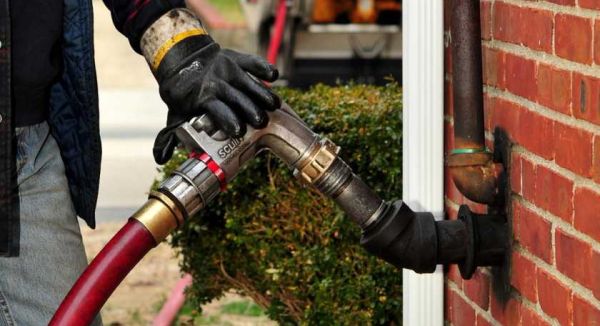Understanding the Risks of Oil Tank Spills
Posted by Sunshine, Isaacson & Hecht LLP on January 9th, 2024

Happy New Year from the Sunshine, Isaacson & Hecht family! In this edition of our blog we remind you that your home is your sanctuary, but did you know that an overlooked aspect, like the oil tank in your basement or in your backyard, could pose potential risks to both your health and the environment?
Let’s delve into the importance of understanding the consequences of oil spills from home tanks. Here are five environmental and health risks associated with these spills, shedding light on why proper maintenance and precautions are crucial. By being informed, we can take steps to ensure the safety of our homes and contribute to the well-being of our surroundings.
- Soil Contamination:
Oil spills don’t just stay on the surface; they have the potential to seep into the soil. The toxic components of oil, including heavy metals and hydrocarbons, can persist in the soil, leading to long-term contamination. This not only affects the soil’s fertility but also disrupts the delicate balance of local ecosystems. Plant life can suffer, and the overall biodiversity of the area may be compromised.
- Groundwater Pollution:
One of the most significant concerns is the possibility of oil reaching and contaminating groundwater. This is a critical source of drinking water for many communities. The infiltration of oil into the groundwater introduces harmful substances, jeopardizing the health of both humans and wildlife that rely on this water source. Contaminated groundwater can lead to severe health issues and ecosystem disruption. On Long Island, any oil spill is likely to reach groundwater.
- Air Quality Issues:
When oil spills occur, volatile components such as benzene and other hydrocarbons can evaporate into the air. This has direct consequences for air quality in, potentially causing respiratory problems and other health issues. Individuals with pre-existing conditions, as well as the general population, may experience adverse effects from inhaling these pollutants. If the spill occurred in your home or basement, the air quality in your home can be negatively impacted.
- Damage to Wildlife and Aquatic Ecosystems:
Spilled oil has devastating effects on nearby water bodies, coating surfaces and suffocating aquatic life. The toxic nature of oil poses a significant threat to fish, birds, and other wildlife. The disruption of aquatic ecosystems can have far-reaching consequences, impacting the entire food chain and biodiversity of the region.
- Fire and Explosion Hazards:
Beyond the environmental impact, oil spills create immediate safety hazards. The spilled oil can create flammable conditions, increasing the risk of fires and explosions. This not only endangers residents but also poses a threat to emergency responders. The combustion of oil releases toxic fumes, exacerbating the potential harm to human health and air quality.
Understanding these risks empowers you and us at Sunshine, Isaacson & Hecht, to take proactive measures. Regular maintenance, timely inspections, and adherence to safety guidelines can significantly reduce the likelihood of oil spills from home tanks. By doing so, we not only protect our homes and the people inside our homes, but we also contribute to the preservation of a safer and healthier environment for all. Let’s work together and call us at (516) 352-2100 for more information about prevention and if you or someone you know has been affected by an oil spill let’s talk about how to proceed and get compensated.
